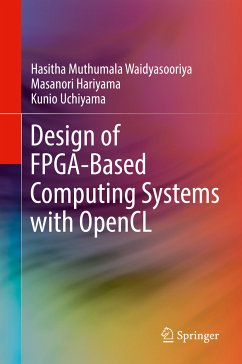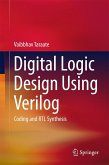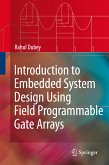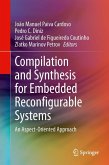In the step-by-step way, readers can understand followings:
- how to set up the design environment
- how to write better codes systematically considering architectural constraints
- how to design practical applications
- Provides readers with an overview and practical examples of OpenCL-based design methodologies for FPGA-based computing systems;
- Helps software engineers to understand systematically patterns of parallel processing and implement such patterns using OpenCL for FPGAs;
- Includes a variety of design examples of embedded applications such as image processing, and high-performance computing.
Dieser Download kann aus rechtlichen Gründen nur mit Rechnungsadresse in A, B, BG, CY, CZ, D, DK, EW, E, FIN, F, GR, HR, H, IRL, I, LT, L, LR, M, NL, PL, P, R, S, SLO, SK ausgeliefert werden.









